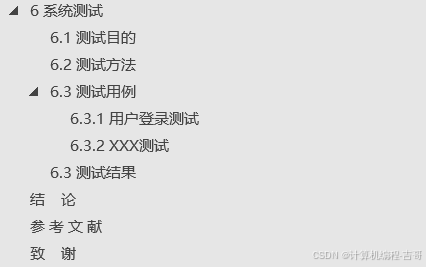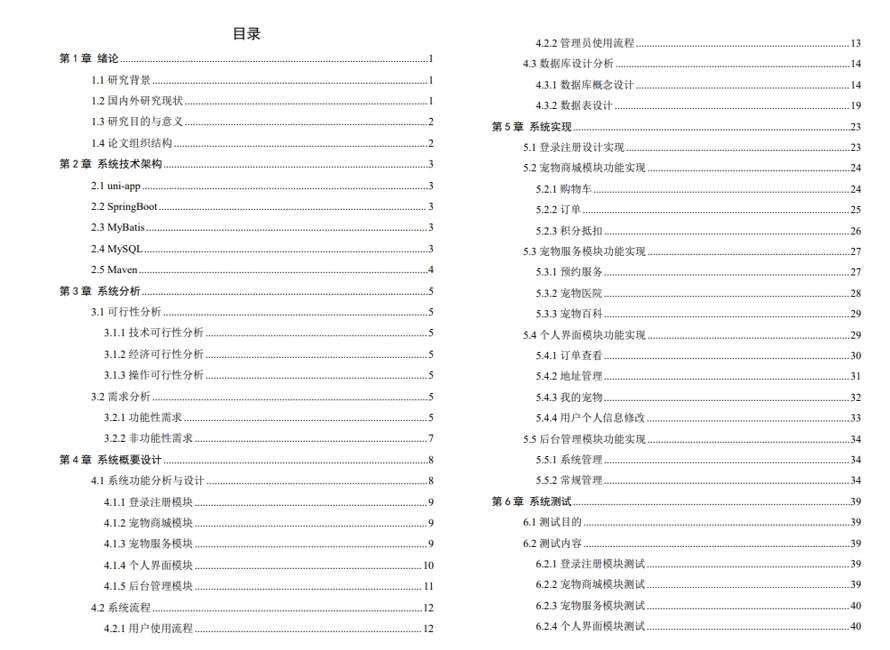本文主要是介绍【渝粤教育】 国家开放大学2020年春季 1054流通概论 参考试题,希望对大家解决编程问题提供一定的参考价值,需要的开发者们随着小编来一起学习吧!
试卷代号:1062
2 0 2 0年春季学期期末统一考试
文学英语赏析 试题
2020年7月
注 意 事 项
一、将你的学号、姓名及分校(工作站)名称填写在答题纸的规定栏内。考试结束后,把试卷和答题纸放在桌上。试卷和答题纸均不得带出考场。监考人收完考卷和答题纸后才可离开考场。
一、仔细读懂题目的说明,并按题目要求答题。答案一定要写在答题纸的指定位置上,写在试卷上的答案无效。
三、用蓝、黑圆珠笔或钢笔答题,使用铅笔答题无效。
Information for the examinees :
● This examination consists of 3 parts.They are:
Part I: Literary Fundamentals (30 points)
Part II: Reading Comprehension (50 points)
Part Ⅲ: Writing (20 points)
● The total marks for this examination are 100 points.Time
allowed for completing this examination is 90 minutes.
● There will be no extra time to transfer answers to the Answer
Sheet: therefore, you should write ALL your answers on the
Answer Sheet as you do each task.
Part I Literary Fundamentals [30 points]
Section l.Match the works with their writers (10 points).
Works
1.Of Studies
2.The Rime of the Ancient Mariner
3.The Strange Case of Dr Jekyll and Mr Hyde
4.Jane Eyre
5.Inspector Calls
Writers
A.Charlotte Bronte
B.JB Priestley
C.Walt Whitman
D.Francis Bacon
E.Ernest Hemingway
F.Robert Louis Stevenson
G.Thomas Hardy
H.Samuel Taylor Coleridge
Section 2.Decide whether the following statements are True (T) or False (F) (10 points).
6.The Old Man and the Sea is one of Ernest Hemmingway’s best-known works.
7.Macbeth is one of the well-known comedies by William Shakespeare.
8.Walt Whitman is a famous American poet.
9.The novel The Heart of Darkness exposes the corruption, cruelty and greed of the
colonial system in Africa.
10.The Rime of the Ancient Mariner is a protest poem against racial discrimination.
Section 3.Choose the correct answers to complete the following sentences (10 points).
11._______can be established by describing the place where the action takes place, or the situation at the start of the story.
A.Climax B.Point of view
C.Flashback D.Setting
12.A ________ is a fourteen-line lyric poem which thymes in a highly controlled way.
A.sonnet B.couple
C.ballad D.haiku
13.Which figure of speech is used in the following lines?
“It was the best of times, it was the worst of times, it was the age of wisdom, it
was the age of foolishness….”
A.Simile B.Parallelism
C.Pun D.Personification
14.was awarded the Nobel Prize for Literature in 2005.
A.Harold Pinter B.John Steinbeck
C.James Joyce D.Alfred Tennyson
15.In his essay “Of studies”, Bacon warns against an over reliance on bookish study
thus:
A.“Some books are to be tasted, others to be swallowed, and some few to be
chewed and digested...”.
B.“To spend too much time in studies is sloth; to use them too much for ornament, is affectation; to make judgment wholly by their rules, is the humor of a scholar.”
C.“Histories make men wise; poets witty, the mathematics subtile; natural
philosophy deep; moral grave; logic and thetoric able to contend.”
D.“Reading maketh a full man, conference a ready man, and writing an exact
man.”
Part II Reading Comprehension [50 points]
Read the extracts and choose the best answer to each question.
Text 1
Text I
Proctor: I am only wondering how I may prove what she told me.If the girl’s a saint now, I think it not easy to prove she’s a fraud, and the town gone so silly.She told it to me in a room alone — I have no proof of it.
Elizabeth: You were alone with her?
Proctor (stubbornly) : For a moment alone, aye.
Elizabeth: Why, then, it is not as you told me.
Proctor (his anger rising) : For a moment, I say.The others come in soon after.
Elizabeth (quietly - she has suddenly lost all faith in him) : Do as you wish, then.(she starts to turn).
Proctor: Woman.(She turns to him.) I’II not have your suspicion any more.
Elizabeth (a little loftily): I have no —
Proctor: I’ll not have it!
Elizabeth: Then let you not earn it.
Proctor (with a violent undertone) : You doubt me yet?
Elizabeth (with a smile, to keep her dignity): John, if it were not Abigail that you must go to hurt, would you falter now? I think not.
Proctor: Now look you -
Elizabeth: I see what I see, John.
Proctor (with solemn warning) : You will not judge me more, Elizabeth.I have good reason to think before I charge fraud on Abigail, and I will think on it.Let you look to your own
improvement before you go to judge your husband any more.I have forgot Abigail, and —
Elizabeth: And L
Proctor: Spare me! You forget nothin’ and forgive nothin’.Learn charity, woman.I have gone tiptoe in this house all seven month since she is gone.I have not moved from there to there without I think to please you, and still an everlasting funeral marches round your heart.I cannot speak but I am doubted, every moment judged for lies, as though I come into a court when I come into this housel
Elizabeth: John, you are not open with me.You saw her with a crowd, you said.Now you
Proctor: 1’11 plead my honesty no more, Elizabeth.
Elizabeth (now she would justify herself): John, I am only —
Proctor: No morel I should have roared you down when first you told me your suspicion.
But I wilted, and, like a Christian, I confessed.Confessed!Some dream I had must have mistaken you for God that day.But you’re not, you’re not and let you remember it! Let you look sometimes for the goodness in me, and judge me not.
Elizabeth: I do not judge you.The magistrate sits in your heart that judges you.I never thought you but a good man, John — (with a smile ) - only somewhat bewildered.
Proctor (laughing bitterly) : Oh, Elizabeth, your justice would freeze beer!
Questions 16-19 (12 points)
16.From the extract, it is clear that .
A.the man and the woman have lost their jobs due to a lawsuit.
B.there is a great tension between the man and the woman.
C.Proctor has lost his lawsuit against Abigail
17.The relationship between the man and the woman is that of.
A.husband and wife
B.lawyer and client
C.brother and sister
18.Which of the following is true according to the extract?
A.Proctor hesitates as to whether he should testify against Abigail.
B.Elizabeth doesn’t want Proctor to charge fraud on Abigail.
C.Abigail doesn’t want to accuse Elizabeth of witchcraft.
19.Elizabeth is portrayed as .
A.guilty and depressed
B.self-disgusted and terrified
C.insistent and suspicious
Text 2
Though I had now extinguished my candle and was laid down in bed, I could not sleep for thinking of his look when he paused in the avenue, and told how his destiny had risen up before him, and dared him to be happy at Thornfield.
‘ Why not?’ I asked myself.‘What alienates him from the house? Will he leave it again soon? Mrs Fairfax said he seldom stayed here longer than a fortnight at a time; and now he
has been resident eight weeks.If he does go, the change will be doleful Suppose he should
be absent spring, summer and autumn: how joyless sunshine and fine days will seem! ’
I hardly know whether I had slept or not after this musing; at any rate, I started wide awake on hearing a vague murmur, peculiar and lugubrious, which sounded, I thought, just above me.I wished I had kept my candle burning: the night was drearily dark; my spirits were depressed.I rose and sat up in bed, listening.The sound was hushed.
I tried to sleep; but my heart beat anxiously, my inward tranquillity was broken.The clock, far down in the hall, struck two.Just then it seemed my chamber-door was touched, as if fingers had swept the panels in groping a way along the dark gallery outside.I said, ‘Who is there?’ Nothing answered.I was chilled with fear.
Questions 20-22 (9 points)
20.The extract is taken from.
A.The Pearl B.Heart of Darkness
C.Jane Eyre
21.Where is this part of the story set?
A.In the narrator’s bedroom B.In Mrs Fairfax’s bedroom.
C.In Mr Rochester’s bedroom
22.The narrator is portrayed as _________.
A.proud and indignant B.depressed and in fear
C.contented and happy
Text 3
There Is No Frigate Like a Book
There is no frigate (舰船) like a book
To take us lands away,
Nor any coursers(骏马)like a page
Of prancing poetry.
This traverse may the poorest take
Without oppress of toll;
How frugal is the chariot
That bears a human soul.
(Emily Dickinson)
Questions 23—25 (9 points )
23.Which of the following summarizes the main idea of the poem?
A.No journey is as cool or as inexpensive as reading a book.
B.Reading books can touch a person’s soul.
C.The poor are less likely to travel than the rich.
24.Which of the following is true of the poem?
A.The speaker suggests that by reading we enrich the mind.
B.The speaker is fascinated with travelling by ship.
C.The speaker enjoys the company of horses.
25.Which of the following does the poem imply?
A.There are more books than boats.
B.It is better to have a vehicle for the body than for the mind.
C.Books are excellent ways to experience the world.
Text 4
Read the extract and give brief answers to the questions 26-29 that follow.
Please note: This reading task will be relevant to the writing task in Part III.
Eveline
She sat at the window watching the evening invade the avenue.Her head was leaned against the window curtains and in her nostrils was the odour of dusty cretonne.She was tired.
Few people passed.The man out of the last house passed on his way home; she heard his footsteps clacking along the concrete pavement and afterwards crunching on the cinder path before the new red houses.One time there used to be a field there in which they used to play every evening with other people’s children.Then a man from Belfast bought the field and built houses in it - not like their little brown houses but bright brick houses with shining roofs.The children of the avenue used to play together in that field-the Devines, the Waters, the Dunns, little Keogh the cripple, she and her brothers and sisters.Ernest, however, never played: he was too grown up.Her father used often to hunt them in out of the field with his blackthorn stick; but usually little Keogh used to keep nix and call out when he saw her father coming.Still they seemed to have been rather happy then.Her father was not so bad then, and besides, her mother was alive.That was a long time ago; she and her brothers and sisters were all grown up; her mother was dead. Tizzie Dunn was dead, too, and the Waters had gone back to England.Everything changes.Now she was going to go away like the others, to leave her home.
Home! She looked round the room,reviewing all its familiar objects which she had dusted once a week for so many years, wondering where on earth all the dust came from.Perhaps she would never see again those familiar objects from which she had never dreamed of being divided.And yet during all those years she had never found out the name of the priest whose yellowing photograph hung on the wall above the broken harmonium beside the coloured print of the promises made to Blessed Margaret Mary Alacoque.He had been a school friend of her father.Whenever he showed the photograph to a visitor her father used to pass it with a casual word:
— He is in Melbourne now.
She had consented to go away, to leave her home.Was that wise? She tried to weigh each side of the question.In her home anyway she had shelter and food; she had those whom she had known all her life about her. Of course she had to work hard, both in the house and at business.What would they say of her in the Stores when they found out that she had run away with a fellow?Say she was a fool, perhaps; and her place would be filled up by advertisement.Miss Gavan would be glad.She had always had an edge on her, especially whenever there were people listening.
—Miss Hill, don’t you see these ladies are waiting?
—Look lively, Miss Hill, please.
She would not cry many tears at leaving the Stores.
But in her new home, in a distant unknown country, it would not be like that.Then she would be married-she, Eveline.People would treat her with respect then.She would not be treated as her mother had been.Even now, though she was over nineteen, she sometimes felt herself in danger of her father’s violence.She knew it was that that had given her the palpitations.When they were growing up he had never gone for her, like he used to go for Harry and Ernest, because she was a girl; but latterly he had begun to threaten her and say what he would do to her only for her dead mother’s sake.And now she had nobody to protect her.Ernest was dead and Harry, who was in the church decorating business, was nearly always down somewhere in the country.Besides, the invariable squabble for money on Saturday nights had begun to weary her unspeakably.She always gave her entire wages-seven shillings-and Harry always sent up what he could but the trouble was to get any money from her father.He said she used to squander the money, that she had no head, that he wasn’t going to give her his hard-earned money to throw about the streets, and much more,for he was usually fairly bad on Saturday night.In the end he would give her the money and ask her had she any intention of buying Sunday’s dinner.Then she had to rush out as quickly as she could and do her marketing, holding her black leather purse tightly in her hand as she elbowed her way through the crowds and returning home late under her load of provisions.She had hard work to keep the house together and to see that the two young children who had been left to her charge went to school regularly and got their meals regularly.It was hard work-a hard life-but now that she was about to leave it she did not find it a wholly undesirable life.
She was about to explore another life with Frank.Frank was very kind, manly, open-hearted.She was to go away with him by the night-boat to be his wife and to live with him in Buenos Ayres where he had a home waiting for her.How well she remembered the first time she had seen him; he was lodging in a house on the main road where she used to visit.It seemed a few weeks ago.He was standing at the gate, his peaked cap pushed back on his head and his hair tumbled forward over a face of bronze.Then they had come to know each other.He used to meet her outside the Stores every evening and see her home.He took her to see The Bohemian Girl and she felt elated as she sat in an unaccustomed part of the theatre with him.He was awfully fond of music and sang a little.People knew that they were courting and, when he sang about the lass that loves a sailor, she always felt pleasantly confused.He used to call her Poppens out of fun.First of all it had been an excitement for her to have a fellow and then she had begun to like him.He had tales of distant countries.He had started as a deck boy at a pound a month on a ship of the Allan Line going out to Canada.He told her the names of the ships he had been on and the names of the different services.He had sailed through the Straits of Magellan and he told her stories of the terrible Patagonians.He had fallen on his feet in Buenos Ayres, he said, and had come over to the old country just for a holiday.Of course~ her father had found out the affair and had forbidden her to have anything to say to him.
—I know these sailor chaps, he said.
One day he had quarrelled with Frank and after that she had to meet her lover secretly.
The evening deepened in the avenue.The white of two letters in her lap grew indistinct.One was to Harry, the other was to her father.Ernest had been her favourite but she liked Harry too.Her father was becoming old lately, she noticed; he would miss her.Sometimes he could be very nice.Not long before, when she had been laid up for a day, he had read her out a ghost story and made toast for her at the fire.Another day, when their mother was alive, they had all gone for a picnic to the Hill of Howth.She remembered her father putting on her mothers bonnet to make the children laugh.
Her time was running out but she continued to sit by the window, leaning her head against the window curtain, inhaling the odour of dusty cretonne.Down far in the avenue she could hear a street organ playing.She knew the air.Strange that it should come that very night to remind her of the promise to her mother, her promise to keep the home together as long as she could.She remembered the last night of her mother’s illness; she was again in the close dark room at the other side of the hall and outside she heard a melancholy air of Italy.The organ-player had been ordered to go away and given sixpence.She remembered her father strutting back into the sickroom saying:
—Damned Italians! coming over here!
As she mused the pitiful vision of her mother’s life laid its spell on the very quick of her being-that life of commonplace sacrifices closing in final craziness.She trembled as she heard again her mother’s voice saying constantly with foolish insistence:
—Derevaun Seraun! Derevaun Seraun!
She stood up in a sudden impulse of terror.Escape! She must escape! Frank would save her.He would give her life, perhaps love, too.But she wanted to live.Why should she be unhappy? She had a right to happiness.Frank would take her in his arms, fold her in his arms.He would save her.
She stood among the swaying crowd in the station at the North Wall.He 'held her hand and she knew that he was speaking to her, saying something about the passage over and over again.The station was full of soldiers with brown baggages.Through the wide doors of the sheds she caught a glimpse of the black mass of the boat, lying in beside the quay wall, with illumined portholes.She answered nothing.She felt her cheek pale and cold and, out of a maze of distress, she prayed to God to direct her, to show her what was her duty.The boat blew a long mournful whistle into the mist.If she went, tomorrow she would be on the sea with Frank, steaming towards Buenos Ayres.Their passage had been booked.Could she still draw back after all he had done for her? Her distress awoke a nausea in her body and shekept moving her lips in silent fervent prayer.
A bell clanged upon her heart.She felt him seize her hand:
—Come!
All the seas of the world tumbled about her heart.He was drawing her into them: he would drown her.She gripped with both hands at the iron railing.
—Come!
No! No! No! It was impossible.Her hands clutched the iron in frenzy.Amid the seas she sent a cry of anguish.
Eveline! Evvy!
He rushed beyond the barrier and called to her to follow.He was shouted at to go on but he still called to her.She set her white face to him, passive, like a helpless animal.Her eyes gave him no sign of love or farewell or recognition.
Questions 26—29 (20 points)
26.What are Eveline’s reasons for wanting to leave? Give at least two reasons in your answer.
27.Why in your opinion, does Eveline not join Frank?
28.Which is the feature of time structure of this story? The action proceeds as in real time or starts a point in the recent pass or shifts back and forth between different time zones?
29.How does the time structure of the story help reflect the feelings of Eveline?
Part III Writing [20 Points]
30.Suppose you are a friend of Eveline’s.Write her a letter (about 150 words) in which
you urge her to leave - or to stay.
这篇关于【渝粤教育】 国家开放大学2020年春季 1054流通概论 参考试题的文章就介绍到这儿,希望我们推荐的文章对编程师们有所帮助!








